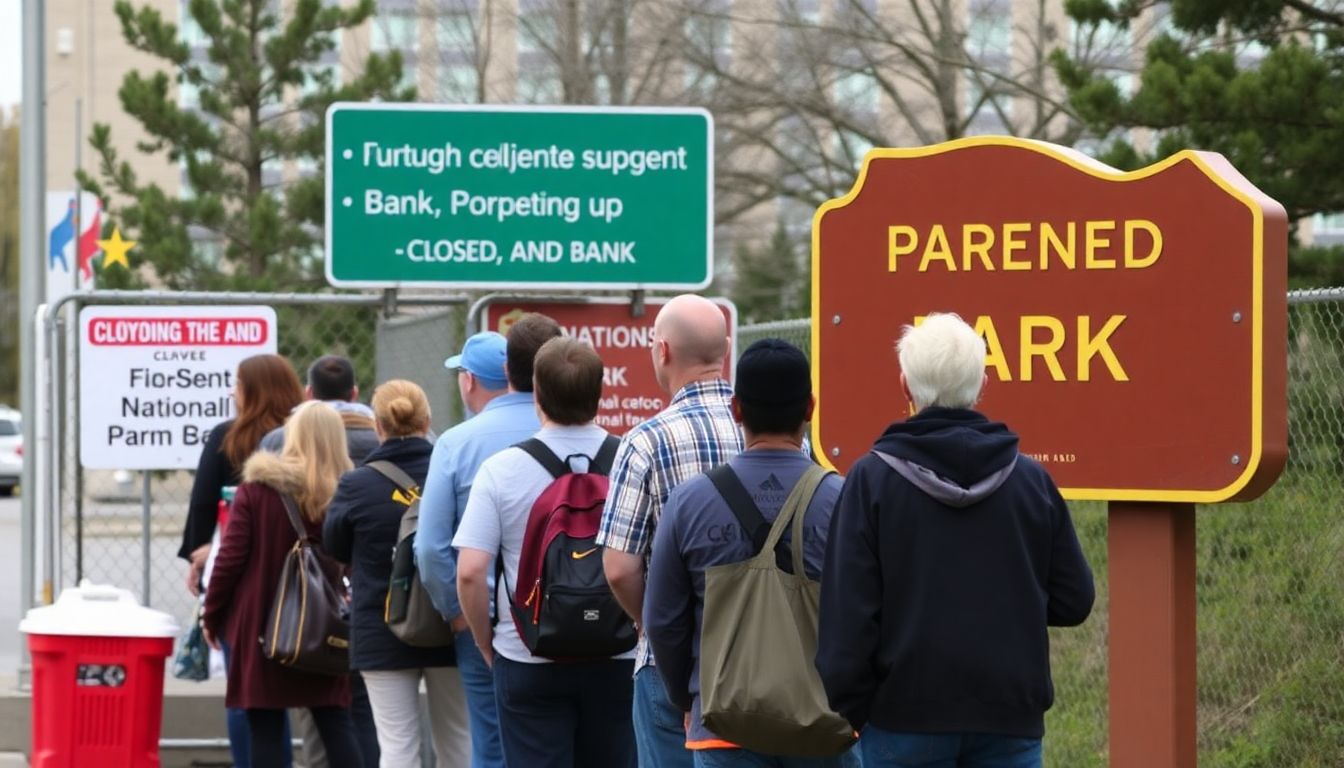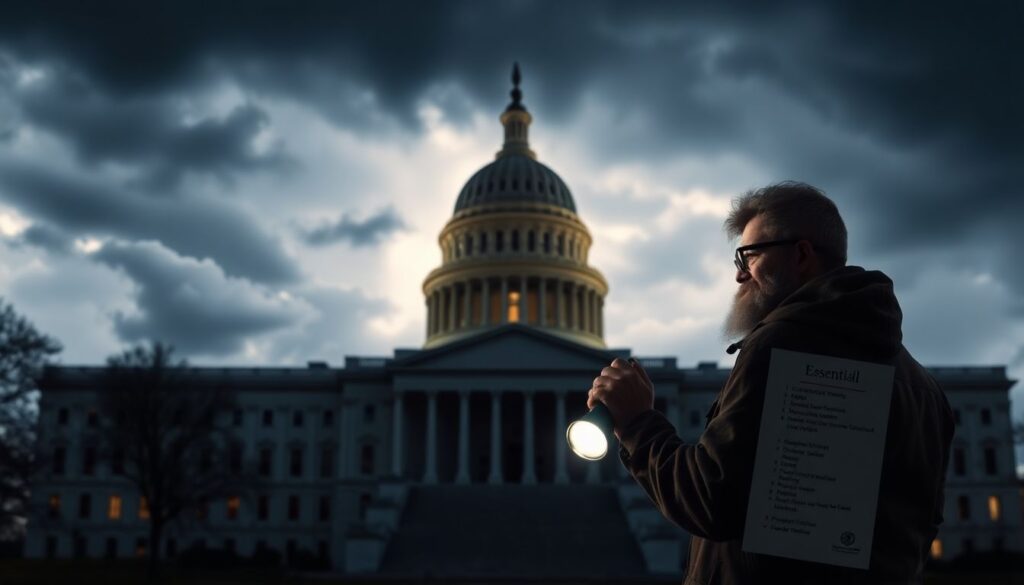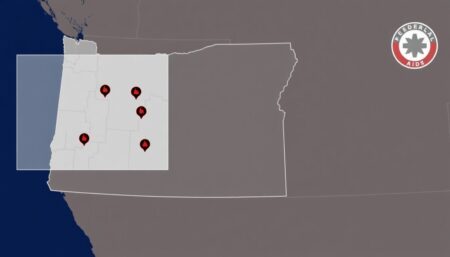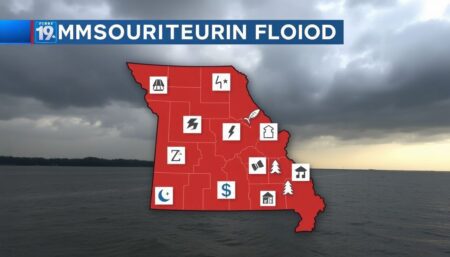As we approach the holiday season, the halls of Congress are abuzz with negotiations that could significantly impact the lives of millions of Americans. The question on everyone’s mind is: will Congress manage to strike a deal on disaster aid and funding before the clock strikes midnight on December 20th, or will we be facing a pre-Christmas government shutdown?
Politico.com, our trusted source for political news and analysis, reports that lawmakers are inching closer to an agreement that would provide much-needed relief to communities devastated by natural disasters, while also averting a shutdown that could disrupt holiday plans and federal services. But with the clock ticking down, every moment counts, and the outcome remains uncertain.
In this article, we delve into the intricacies of the ongoing negotiations, providing you with the latest insights from Politico’s security review. We’ll explore the key sticking points, the potential impacts of a shutdown, and the steps being taken to ensure the security of our nation’s infrastructure during this critical time. But more importantly, we’ll discuss what these developments mean for you, the prepper, and how you can use this situation to enhance your preparedness strategies.
So, buckle up, fellow preppers, as we navigate the political landscape together. By the end of this article, you’ll not only have a better understanding of the political drama unfolding in Washington, but you’ll also gain valuable insights into how to prepare for similar situations, ensuring that you and your loved ones are ready to weather any storm, political or otherwise. Let’s dive in!
Navigating Political Storms: A Prepper’s Guide to Surviving Government Shutdowns
Government shutdowns, a stark reminder of political gridlock, can disrupt daily life and pose unique challenges. As preppers, we understand the importance of being prepared for such situations. A government shutdown doesn’t just mean closed national parks and delayed paychecks; it can also lead to temporary closures of essential services and increased financial strain. But fear not, fellow preppers! With a bit of foresight and planning, we can navigate these political storms with ease.
Firstly, it’s crucial to stay informed. Keep track of the news and understand the reasons behind the shutdown. This knowledge can help you anticipate the impact on your life and plan accordingly. For instance, if you rely on government services, knowing which ones will be affected can help you make alternative arrangements.
Next, let’s talk about financial preparedness. A shutdown can mean delayed or missed paychecks, especially for federal employees. To mitigate this, consider building an emergency fund that can cover 3-6 months’ worth of living expenses. If a shutdown is imminent, try to time your bills to avoid overlapping with the shutdown period. Additionally, consider having some cash on hand, as ATMs may run out of money or become inaccessible during a prolonged shutdown.
Now, let’s not forget about food and supplies. While a shutdown doesn’t typically lead to immediate shortages, it’s a good idea to have a well-stocked pantry. Focus on non-perishable items that require minimal cooking, just in case. Also, ensure you have enough medication and other essential supplies to last you through the shutdown.
Lastly, it’s important to maintain a calm and positive attitude. Shutdowns can be stressful, but panicking won’t help. Instead, focus on what you can control. Use this time to bond with your family, work on personal projects, or even learn a new skill. Remember, every challenge is an opportunity in disguise.
In conclusion, surviving a government shutdown is all about being prepared, staying informed, and maintaining a positive attitude. With these tips, you’ll be ready to weather any political storm that comes your way.

Understanding the Storm: The Political Climate
In recent years, the political landscape in many countries has been marked by increasing polarization and gridlock, with government shutdowns becoming an unfortunate recurring phenomenon. To understand the current political climate and the potential for future shutdowns, let’s break down the key players, their stances, and the issues at hand.
The political climate can be likened to a complex dance, with various actors moving to different rhythms. At the center of this dance are the executive and legislative branches of government. The executive branch, led by the head of state, is responsible for implementing and enforcing laws, while the legislative branch, composed of elected representatives, is tasked with creating and amending those laws.
In many democracies, the legislative branch is further divided into two chambers, often referred to as the upper and lower houses. Each chamber has its own rules and procedures, and both must pass a bill for it to become a law. This system of checks and balances is designed to ensure that no single branch becomes too powerful, but it can also lead to gridlock when the two sides cannot agree.
One of the key issues leading to government shutdowns is the process of appropriations, or the allocation of funds for government operations. Each year, the legislative branch must pass a series of spending bills to fund the government. If these bills are not passed by the start of the fiscal year, or if the president vetoes them, the government can shut down, leading to the furlough of non-essential employees and the closure of certain government services.
In recent years, shutdowns have often been the result of disputes over spending levels, policy riders, or other contentious issues. For instance, in the United States, shutdowns have occurred over issues such as immigration reform, healthcare, and fiscal policy. The key players in these disputes are typically the president and the leaders of the two chambers of Congress, who often take opposing stances on these issues.
To prep for potential government shutdowns, it’s crucial to understand the political climate and the issues at play. Here are some steps you can take:
- Stay informed: Keep up-to-date with political news and developments. This will help you understand the key issues and the stances of the main players.
- Understand the process: Familiarize yourself with the appropriations process and the role of each branch of government in it. This will help you anticipate potential shutdowns and understand their causes.
- Plan ahead: If you rely on government services, consider what you would do in the event of a shutdown. This might include having an emergency fund, knowing alternative service providers, or making contingency plans.

The Impact of a Shutdown: More Than Just Closed Doors
The Impact of a Shutdown: More Than Just Closed Doors

Prepping Your Finances: A Financial Survival Guide
Provide practical financial advice for prepping for a government shutdown. This could include creating an emergency fund, diversifying income streams, and understanding your employment rights during a shutdown.

Stocking Up: Essential Supplies for a Political Storm
Stocking Up: Essential Supplies for a Political Storm

Staying Informed: Navigating the News During a Crisis
Staying Informed: Navigating the News During a Crisis

Community Matters: Building a Support Network
Explain the importance of community support during a crisis. Discuss how to build a support network, both online and offline, and how to help others in your community during a shutdown.

Preparing for the Aftermath: Recovering from a Shutdown
Preparing for the Aftermath: Recovering from a Shutdown









